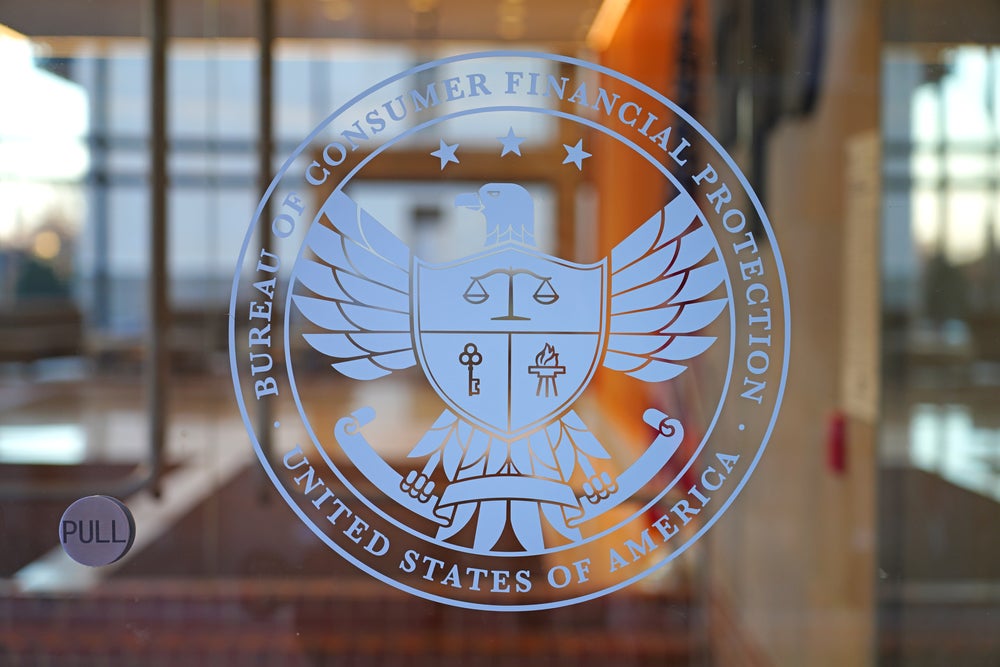
Joseph Lynyak, a partner at Dorsey & Whitney specialising in the CFPB banking regulation, has had a busy time of it. And that comes as no surprise. Whatever one thinks of the new Trump administration, life is not dull for the financial services journalist. There has been much to cover. But for the legal fraternity, Trump 2.0 also offers a new revenue stream as financial services clients try to make sense of potential regulatory changes.
It also comes as no surprise that the Trump administration is not a paid-up member of the CFPB fan club. It has made no secret of where it believes consumer financial protection ranks as a priority. Trump has lost no time in launching an all-out assault on the CFPB.

Access deeper industry intelligence
Experience unmatched clarity with a single platform that combines unique data, AI, and human expertise.
Myriad nominations, acting appointments and Executive Orders
Key among these executive actions is the appointment of Russell Vought as Director of the CFPB. The nomination of Jonathan McKernan as its Director followed. That was just for starters. Next up was the closure of its headquarters building and furloughing of its employees. Probationary employees have been axed while expert witness contracts have been terminated. This attack on the CFPB is augmented by the cessation of all examination, enforcement, and rulemaking activities. The prudential banking agencies have likewise been instructed not to proceed with proposed rulemakings. In addition, Republican nominees and appointees now populate seats formerly occupied by Democrats.
“The onslaught of the actions taken by the Administration has caught banks and non-banks by surprise,” says Lynyak. The question being asked at this moment is simply: What happens now? For example, the CFPB is effectively shuttered at present. Regulatory and supervisory activities of the prudential regulators have, for the moment, been minimised as new agency management is assuming their respective roles and implementing policies.
“These numerous administrative actions have occurred in a governance environment that is unique in its aggressive adoption and implementation of the unitary theory of the executive. Unlike every former administration in memory, the new Administration has exercised its authority in a manner that critics complain arguably ignores written and unwritten guardrails that heretofore were believed to protect civil service employees. This includes the creation and authorisation of the “DOGE” to reduce the size and mission of government agencies.”
Is this policy legal?
Trump has advanced constitutional arguments to defend the legitimacy of the Administration’s strategy. Lynyak suggests however that Trump’s actions arguably infringe on the authorities of the other two branches of the federal government.

US Tariffs are shifting - will you react or anticipate?
Don’t let policy changes catch you off guard. Stay proactive with real-time data and expert analysis.
By GlobalData“While changes in a presidential administration typically create objections by the losing political party, the aggressive exercise of executive authority has resulted in a wave of lawsuits seeking to halt the Administration’s numerous actions and directives. During the course of litigation, in several instances plaintiffs have been successful already in obtaining partial or complete national injunctions that have halted or significantly slowed the pace of changes being implemented by the Administration.
“The financial services agencies are not immune from the attention of the DOGE and other senior officials in the Administration. In addition, both banks and non-banks are actively lobbying the affected agencies not only to cease rulemaking activities but to reconsider recently adopted rules and regulations. Similarly, advocates for reduced regulatory oversight have requested the Administration to abandon litigation positions defending pro-consumer regulations that were adopted by the CFPB in recent years.”
State regulators retain power to enforce the CFPA
“Regardless of the status of the CFPB’s enforcement activities, it remains the case that state attorneys general and state regulators may “enforce provisions of [the Consumer Financial Protection Act (Title X of the Dodd-Frank Act) (the “CFPA”)] or regulations issued under [the CFPA]” and “secure remedies under provisions of [the CFPA] or remedies otherwise provided under other law.” While there are exceptions, the consequence of these provisions of the CFPA is to empower state attorneys general and state regulators to enforce the CFPA’s prohibitions against unfair, deceptive, or abusive conduct as well as any specific rules enacted by the CFPB,” continues Lynyak.
Lynyak advice to clients
“Our response to our clients during these uncertain times is a simple observation. Patience is necessary before adopting strategic and tactical plans while the legal authority of the Administration and concomitant challenges by opponents are resolved. In particular, because former well-understood guardrails that could reliably limit changes in regulation and oversight now no longer apply, we believe that stakeholders cannot reasonably predict what the financial services sector will resemble until Congress and the courts address the Administration’s authority and approach to regulatory oversight,” concludes Lynyak.







